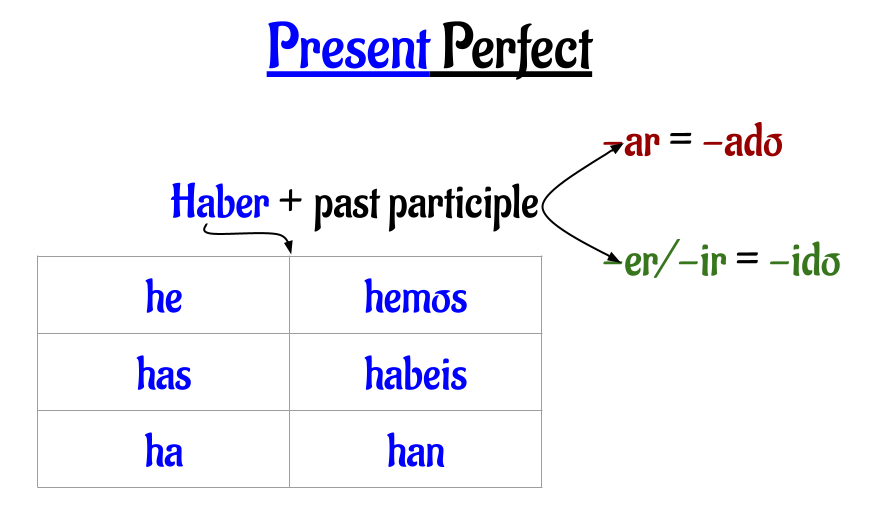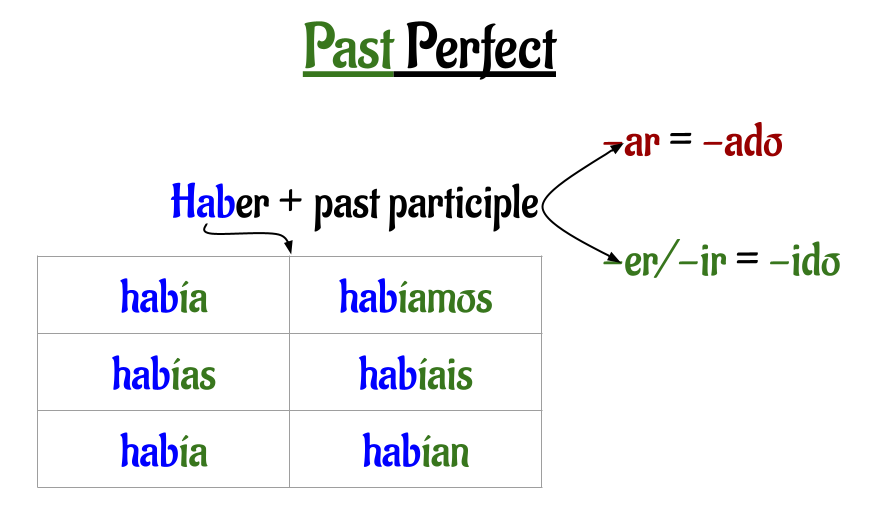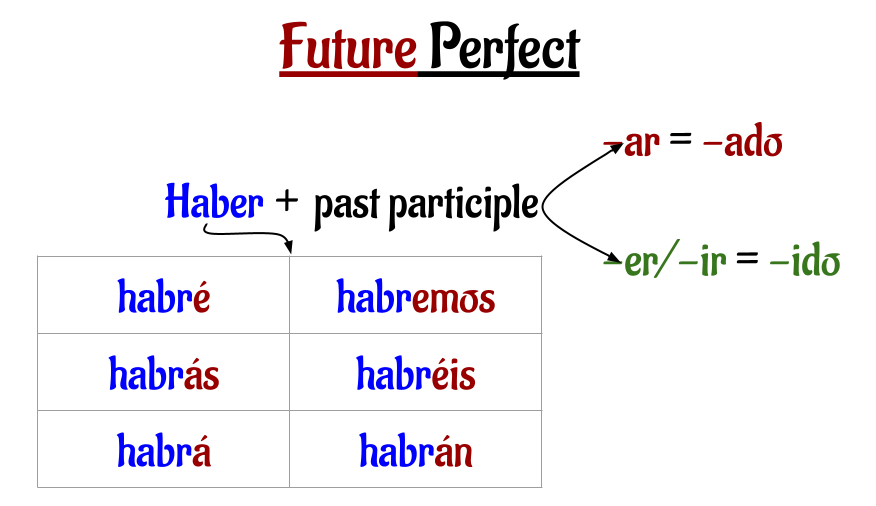Perfect Tense Concept
Present Perfect
In general, this tense is appropriate when the English present perfect would be natural. It refers to a completed past action relevant to the present.
The event denoted by the present perfect normally belongs to the current time period, such as today, this week, this semester, etc. It contrasts with the preterit, whose actions usually belong to a completed time period, such as yesterday, last week, last summer.
To form the Present Perfect it requires the use of the verb haber in the present tense with the past participle of the verb. Haber is the auxiliary verb to have. However, English speakers need to be careful to distinguish its function as compared to tener (to have - possession) and tener que (to have to - an obligation). Here are some examples to help distinguish the use of to have.
The event denoted by the present perfect normally belongs to the current time period, such as today, this week, this semester, etc. It contrasts with the preterit, whose actions usually belong to a completed time period, such as yesterday, last week, last summer.
To form the Present Perfect it requires the use of the verb haber in the present tense with the past participle of the verb. Haber is the auxiliary verb to have. However, English speakers need to be careful to distinguish its function as compared to tener (to have - possession) and tener que (to have to - an obligation). Here are some examples to help distinguish the use of to have.
|
tener (possession)
Yo tengo un perro peludo. I have a large harry dog. tener que (obligation) Yo tengo que dar de comer al perro esta tarde. I have to feed the dog this afternoon. haber (auxiliary) Yo he dado de comer al perro ya. I have fed the dog already. |
Here is a chart with the Present Tense conjugations of the auxiliary verb HABER and the past participle endings.
Here are some examples of the Present Perfect and their translations.
|
Marta ha visto la película en el cine.
Marta has seen the movie the in theatre. Ya he comido, gracias. I have already eaten, thank you. Nosotros no hemos visitado el parque en el Zócalo en México. We have not visited the park in the Zocalo in Mexico. |
Past Perfect
The past perfect is very similar to the present perfect, except the point of reference is put in the past. The individual speaking is linking events in the past together through the use of the perfect tense.
|
Present:
|
Past:
|
Here is a chart with the Past Tense conjugations of the auxiliary verb HABER and the past participle endings.
Future Perfect
The future perfect combines the future form of haber with the past participle. See chart below.
Uses of the Future Perfect
The future perfect has two principal uses.
|
1) It has the literal meaning corresponding to English.
2) It adds the idea of conjecture, probability, or concession to ideas otherwise expressed in present perfect or preterit.
|



